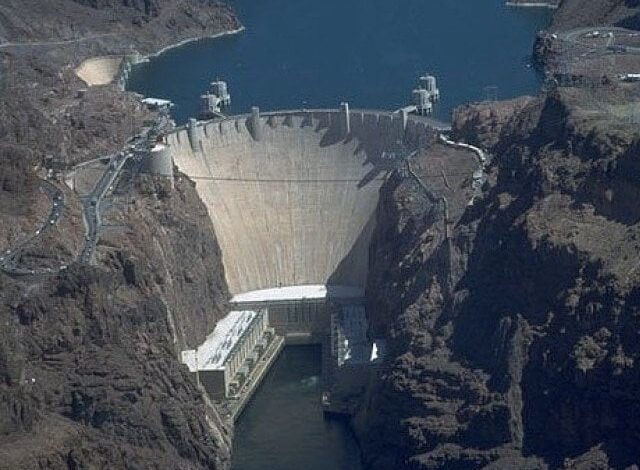
Rifaqatullah Razarwal
In Khyber Pakhtunkhwa’s Mohmand district, residents are up in arms over what they view as an unconstitutional move regarding job applications for positions at the Momand Dam.
Frustration has surged following a job advertisement published by Lahore’s WAPDA department in the “Aaj” newspaper on September 8th. It calls for applications from Punjab residents for seven out of nine vacant positions, leaving only surveyor and cook roles open for applicants from Khyber Pakhtunkhwa.
Wasidullah, a prominent social worker from Mohmand district, has voiced his concerns regarding the job advertisement’s implications. He criticizes the decision to invite applications from Punjab residents for significant positions like Public Relations Officer (Grade 16) and Imam Masjid (Grade 12).
According to Wasidullah, this move seems to disregard the presence of well-qualified individuals in the tribal districts and Khyber Pakhtunkhwa. He questions the rationale, “Are there no preachers or religious scholars in this area? Is it impossible to find a suitable information officer here? Qualified candidates from our region are readily available. Why overlook citizens of Punjab who may not be familiar with the local context and sentiments?”
Also Read: Mano Dheri Residents Take Matters Into Their Own Hands, Build Bridge to Bridge Gaps
Arshad Momand, a journalist residing in Mohmand district, sheds light on the region’s historical development shortcomings. He remarks, “Development work in Mohmand remains minimal, and when projects are initiated, the local population still misses out on reaping the benefits. This perpetuates a sense of neglect among the people.”
Momand underscores the need for transparency and fairness in the recruitment process, “The decision to hire preachers and information officers from Punjab raises a critical question. Are there no preachers or religious scholars in our region? Are we unable to find a qualified information officer locally? I can point to numerous highly qualified individuals, including Ph.D. scholars, in our area who can fill these roles effectively.”
Maulana Khanzeb, a local leader from Bajaur District, underscores the gravity of the situation. He points to constitutional provisions, including Articles 158, 161, 162, and 183, which mandate the equitable distribution of benefits and resources for development projects among the local population.
Khanzeb decries what he sees as a violation of these constitutional mandates, resulting in the local populace being deprived of their rightful advantages. He voices his concerns clearly, “This appears to be a form of state oppression through WAPDA. As victims of terrorism and extremism, we are now being denied access to our own resources. While jobs should rightfully go to the people in areas where projects are being developed, we find ourselves in a situation where resources are being taken away from us. This has pushed us to prepare for protests to reclaim our rights.”
The Mohmand Ittehad, a coalition formed in response to previous grievances, has actively protested against the deprivation of facilities, and they are now gearing up for renewed demonstrations.
The locals in Mohmand district have expressed their displeasure, labeling it an unjust act by WAPDA. This controversy has ignited a fierce debate about the allocation of jobs and opportunities within their own region.
These grievances are further intensified by historical injustices. Despite hosting multiple dam construction projects, such as the Warsak Dam established in 1957, locals have not received the promised royalties and concessions. They believe these unfulfilled commitments represent a disregard for their rights and interests.
For the residents of Mohmand district, it’s a matter of constitutional rights and fairness. They argue that the Constitution clearly designates the local population as the primary beneficiaries of the region’s resources, as laid out in Articles 158, 161, 162, and 183. They demand that WAPDA rectify what they view as an unconstitutional procedure and provide them with their rightful opportunities.
The Mohmand Dam, geographically connecting Bajaur, Mohmand, and Charsadda districts within Khyber Pakhtunkhwa, is a project developed through cooperation between the governments of Pakistan and China, with an estimated cost of approximately 5 billion rupees. The dam is anticipated to generate 800 MW of electricity. However, locals claim that they have been left in the dark about the project’s potential benefits, further exacerbating their discontent.
These historical grievances have now culminated in renewed protests and a growing determination to assert their rights in the face of what they perceive as an unjust situation.
TNN made several attempts to reach the Director of Recruitment at the WAPDA Lahore department for their perspective on the issue. However, no response was received, leaving the matter unresolved and further fueling the locals’ frustration.
The Mohmand Dam project, inaugurated in 2019 with an initial five-year deadline, faced setbacks when floods significantly damaged a substantial portion of the dam last year. As a result, the project has experienced delays.
Officials now anticipate the commissioning of the first unit in December 2026. The ongoing project symbolizes both hope and concern for the locals, who seek fair participation and the realization of promised benefits.







